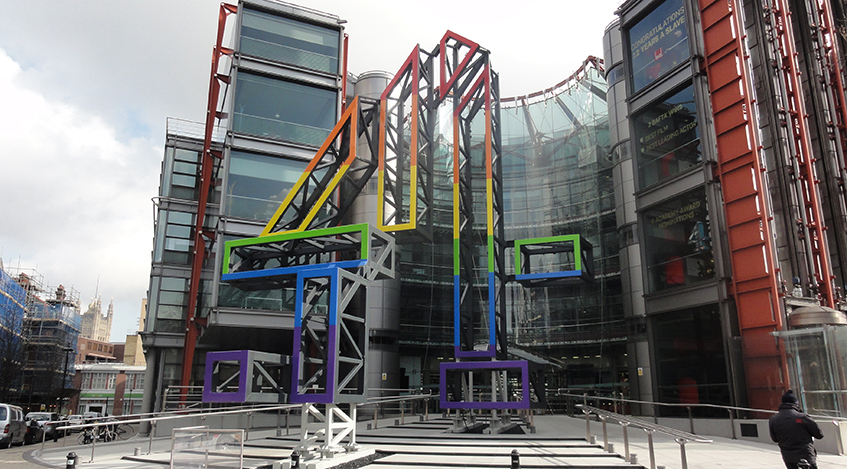Turn off ITV’s Love Island. Switch over from Poldark on BBC One. This summer you really should be watching Channel 4.
Not for its stable of shows, though with the Handmaid’s Tale, the Crystal Maze and Naked Attraction currently airing, it continues to offer the diverse range of programming upon which it built its reputation. No, the channel represents the first meaningful economic test for this government’s commitment to devolution and for the new metro mayors elected in May.
On Wednesday, government consultation on whether to move the channel out of London closed. Bidders – and commentators – made their pitches: “Why Channel 4 must move to Manchester”; “West Midlands makes pitch to lure Channel 4 from London”; “Why Coventry is the only sensible choice for broadcaster’s new home”. Similar noises were made by Bristol, Leeds, Sheffield and Brighton.
The stakes are high. The BBC decided in 2006 that it would establish a new regional centre in Salford, with 2,500 roles relocated. By 2015 1,500 posts had been transferred and, according to KPMG, the move was contributing an annual GVA to the regional economy of £277m.
Channel 4’s move could yield comparable benefits. It currently employs 819 people (with only 23 based outside the capital) and the West Midlands Combined Authority argues a move to the region could directly generate £2.3bn of GVA between 2021 and 2030. It would also create £2.7bn of indirect GVA during the same period.
A two-horse race between Birmingham (with sites near Birmingham Curzon station and by the HS2 Birmingham Interchange station in Solihull already earmarked) and Salford (MediaCity) appears likely.”
West Midlands mayor Andy Street makes a compelling case based in no small part on the region’s real estate credentials: a strong track record in securing “other major relocations such as global bank HSBC, and investors including BBC Three, Amazon, Jaguar Land Rover and HS2 Ltd”; and “prime rents at 50% below London’s rates”.
Channel 4 hasn’t shown much enthusiasm for a move so far. But ministers appear unlikely to budge. A two-horse race between Birmingham (with sites near Birmingham Curzon station and by the HS2 Birmingham Interchange station in Solihull already earmarked) and Salford (MediaCity) appears likely.
Appeals to keep the broadcaster in London will be made. But if the government is serious about rebalancing the economy it should resist them. Yes, it will make sense to keep some functions in the capital, but these should be the minority.
And how might the move be financed? As the government consultation notes, Channel 4’s HQ on Horseferry Road, SW1, was valued at £96m in its 2015 annual report. A sale would also create a prime opportunity in London. Win-win.
■ Why has EG devoted so many pages this week to covering LGBT in real estate? I’ll let Chris Grigg answer.
“Tone from the top does make a difference. If you don’t have that then it is really hard to make progress. If people do not believe that those people at a senior level are committed then it ain’t going to work.”
Grigg was speaking at this week’s first LGBT property business diversity conference, co-hosted by BNP Paribas Real Estate and JLL.
The British Land chief executive went on to say that millennials expected diversity and inclusion principles and policies to be commonplace; firms without them would struggle to recruit diverse talent as they would be regarded as peculiar.
Chris Ireland has an answer too. “A lot of our clients are looking across their supplier base and putting more of an onus on suppliers to make sure that our ethical goals and targets fit with theirs,” said the JLL chief executive at the same event. “If they don’t then you can look forward to getting less work.”
There are plenty of other reasons it’s the right thing to do. But those business reasons are enough, aren’t they?
To send feedback, e-mail damian.wild@egi.co.uk or tweet @DamianWild or @estatesgazette











